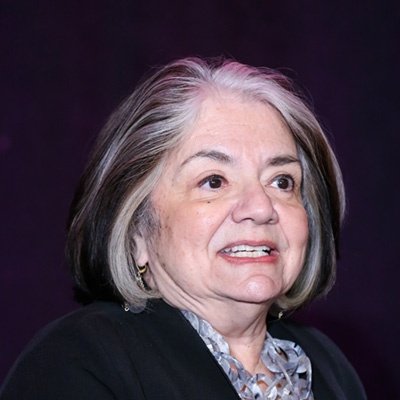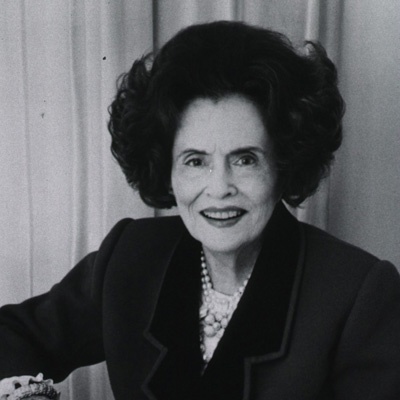Cancer advocacy in the spotlight
This September, the Cancer History Project is focusing on the evolution of cancer advocacy over the past 50 years. Here are selected archives recognizing and celebrating advocates—and remembering their legacy.
- Breast Cancer Coalition to Congress: ‘Find a Way To Fund The War,’ Bypass Level Is Not Enough
By The Cancer Letter | August 7, 1992
For years cancer researchers looked wistfully at the appropriations hauled in by the politicized AIDS activists. What would happen if cancer patients became as politicized? Would more money suddenly be found for cancer?
Now the time for wondering has passed.
Like it or not, breast cancer patients have moved beyond battling paternalistic surgeons. Politicized and militant, they are taking on Congress, the President and NCI.
- Book: A Biography of the Cancer Survivorship Movement: The March
By Cancer History Project | March 11, 2021
Excerpted from Judith L. Pearson’s new book, From Shadows to Life: A Biography of the Cancer Survivorship Movement.
- Report: NBCC: An Evaluation of Work Over the Breast Cancer Deadline 2020 Period
By National Breast Cancer Coalition | April 7, 2021
This evaluation centers on the impact of the National Breast Cancer Coalition’s (NBCC) research and advocacy programs and efforts, with an emphasis on NBCC’s work after NBCC announced the Breast Cancer Deadline 2020 in 2010.
Quote of the week
We will no longer be passive. We will no longer be polite. We can no longer afford to wait while Congress gets around to significant, decent funding for breast cancer.
Fran Visco
Featured contributors in cancer advocacy
National Breast Cancer Coalition
National Coalition for Cancer Survivorship
Celebrating advocates


- Fran Visco: President of the National Breast Cancer Coalition
By National Breast Cancer Coalition | Sept. 1, 2021


- Subha Barry: A Strength to Pay Forward
By Rutgers Cancer Institute of New Jersey | July 29, 2021


- Val Skinner: Chipping Away at Cancer
By Rutgers Cancer Institute of New Jersey | June 3, 2021
- Marlene McCarthy, formidable National Breast Cancer Coalition advocate, dies at 74
By The Cancer Letter | July 20, 2018


- Jane Reese-Coulbourne, advocate, consultant, industry executive, dies at 63
By The Cancer Letter | May 11, 2018


- Ellen Stovall, Pioneering Advocate for Survivorship, Dies at 69
By The Cancer Letter | January 8, 2016 - Mike Katz, 61, Advocate, Educator
By The Cancer Letter | May 1, 2015


- Connie Curran, 67, C-Change Executive Director
By The Cancer Letter | Nov. 21, 2014 - Jessie Gruman, 60, CFAH Founder and President
By The Cancer Letter | Sept. 5, 2014 - Selma Schimmel, Founder of Vital Options, Dies of Cancer
By The Cancer Letter | May 23, 2014 - Maria Carolina Hinestrosa, EVP of National Breast Cancer Coalition
By The Cancer Letter | June 26, 2009 - Richard Bloch, advocate for patient information services, dead at 78.
By The Cancer Letter | July 30, 2004


- Cancer Program Advocate Mary Lasker, 93, Prodded Government, Scientists For Cures
By The Cancer Letter | March 4, 1994 - Rose Kushner, Author, Advocate, Dead At 60 Of Breast Cancer
By The Cancer Letter | Jan. 19, 1990
Recent contributions
- A Cure Within: Scientists Unleashing the Immune System to Kill Cancer
By ASCO | September 8, 2021 - The National Cancer Act’s Impact on Therapeutic Immunotherapy
By ASCO | September 8, 2021
This column features the latest posts to the Cancer History Project by our growing list of contributors.
The Cancer History Project is a free, web-based, collaborative resource intended to mark the 50th anniversary of the National Cancer Act and designed to continue in perpetuity. The objective is to assemble a robust collection of historical documents and make them freely available.
Access to the Cancer History Project is open to the public at CancerHistoryProject.com. You can also follow us on Twitter at @CancerHistProj.
Is your institution a contributor to the Cancer History Project? Eligible institutions include cancer centers, advocacy groups, professional societies, pharmaceutical companies, and key organizations in oncology.
To apply to become a contributor, please contact admin@cancerhistoryproject.com.











